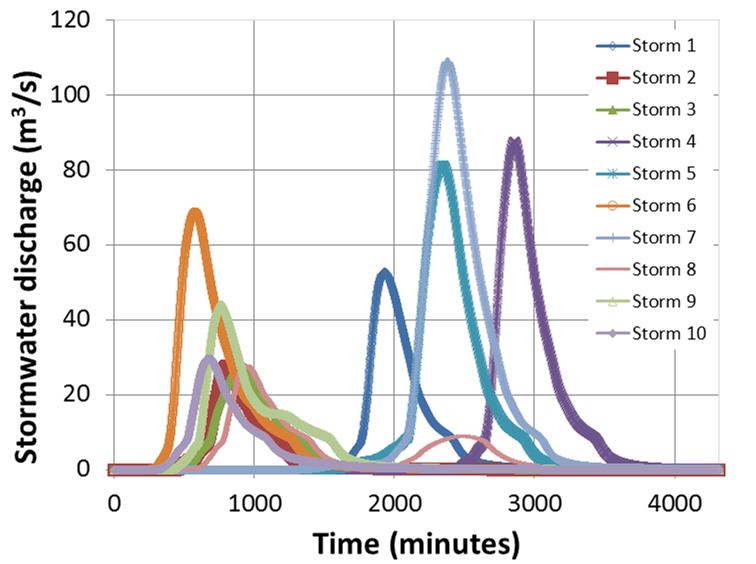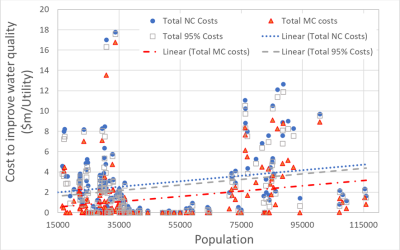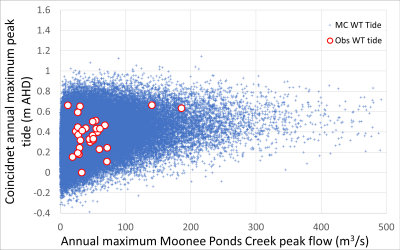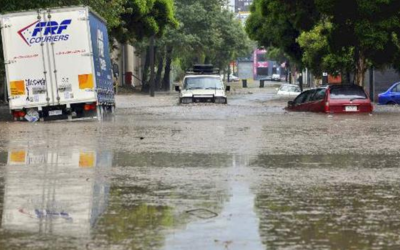
Impact of ensembles of full volume rain events on the hydrology of Armstrong Creek at Barwon Heads Road near Geelong (circa 2008)
A modern perspective on hydrology processes of two catchments in regional Victoria
Peter J Coombes, Mark Colegate, Luke Barber and Mark Babister. Presentation at HWRS2016 Conference at Queenstown New Zealand at 10:30 am on Thursday 1 December 2016
There is often considerable disagreement about the critical hydrological parameters and resultant hydrological, hydraulic and ecological responses of ungauged urban catchments.
New methods from the latest version of Australian Rainfall and Runoff (ARR2016) were used to analyse emerging urban catchments. This included Regional Flood Frequency Estimation, rainfall runoff observations from nearby gauged catchments and ensembles of full volume rain events.
These processes were be used to transfer hydrology parameters from nearby gauged catchments to urban catchments with similar natural characteristics. This process allows the determination of a flood frequency analysis of the nearby urban catchment as demonstrated for Armstrong Creek near Geelong and Canadian Creek near Ballarat.





